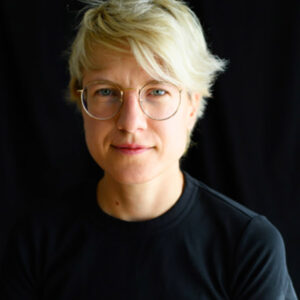Current Position: Junior Visiting Fellow at the Institute for European, Russian and Eurasian Studies, George Washington University
Research Interests: Ukraine and the Soviet Union, Gender, reproduction, and medicine, Memory politics in Ukraine
Why did you decide to join the Shevchenko Scientific Society?
It was an obvious decision. I am Ukrainian, and when I moved to New York to study, I found out about NTSh. And then I even lived two blocks from the society! When I came to the US, I was very interested in the Ukrainian diaspora, so at first for me it was a kind of research – I wanted to see who American Ukrainians are and what they do. Also during my studies, I have realized disparities and inequalities in the field of East European and Slavic studies, so now I see how important it is to have and develop Ukrainian scholarly institutions.
What do you value about membership in the Society? What is your most memorable Society’s event or publication?
I especially value informal conversations after events. At the third-floor gatherings I met people whom I would not have met anywhere else and learned a lot about life of Ukrainians in NYC. I like that events here are not limited to hosting academics and that poets, musicians and other presenters are integral part of the Society’s life. The most memorable event is my own talk in December 2018. As a graduate student, I got interested in an anti-alcohol campaign run by Ukrainian doctors in Galicia during the 1920s, and that interest turned into a research paper. The campaign was led by Dr. Sofia Parfanovych, an obstetrician-gynecologist, writer, and public health activist. My talk was focused on her work as the head of the Vidrodzhennia Anti-Alcohol Society in Lviv and mostly based on NTSh archives.
How did your interest in Ukrainian culture and society influence your career path?
I am a Ukrainian historian and my work is mostly about Ukraine. As a junior visiting fellow at the Institute for European, Russian, and Eurasian Studies at the George Washington University, I am now devoted to developing the Ukraine Program at the Institute and telling a broad audience about Ukraine and the war.
What is your current research/work project?
Currently I am revising my dissertation into a book. I explore the role of abortion in Soviet life and argue that for doctors this medical procedure was a part of female emancipation both in the early Soviet and postwar periods. My findings are based on a microhistory of a provincial hospital in the town of Irshava in Transcarpathia and a memoir of a Soviet Ukrainian obstetrician-gynecologist who worked there. I was finishing my dissertation in spring 2022, with all my thoughts about my family and friends in Ukraine. It was more important than ever to finish this long project to be able to advance Ukrainian studies in academia, and to fight the dominance of russian studies and narratives that they promote. When Ukraine is destroyed, and unfortunately, I cannot do anything about it, I cannot kill, so they only thing I can do it is just write about Ukraine.
What career advice would you give for new members of the Shevchenko Scientific Society?
Do not forget that career is not the most important thing in your life. Be open to radical changes – long breaks from a career can be the most enjoyable and productive periods in your life.

